Key Takeaways
1. Mathematics is a game of patterns and surprising connections
Mathematics is a joke.
Patterns in numbers. The world of mathematics is filled with unexpected patterns and connections. From the surprising prevalence of Benford's law in natural datasets to the Fibonacci sequence in nature, mathematics reveals hidden order in seemingly random phenomena. These patterns extend beyond pure mathematics into various fields, including physics, biology, and even social sciences.
Surprising connections. Mathematical concepts often have surprising applications across diverse disciplines:
- The conic sections, studied by ancient Greeks, are crucial in modern physics and engineering
- Complex numbers, once considered purely abstract, are now fundamental in quantum mechanics
- The concept of exponential growth applies to fields as diverse as compound interest, population dynamics, and viral spread
Mathematics continually demonstrates its power to unify seemingly unrelated concepts and provide insights into the fundamental nature of reality.
2. The ubiquity of power laws in nature and human systems
The common statistical term "long tail" is often a euphemism for a hyperbola and its asymptote.
Power laws in diverse systems. Power laws, mathematical relationships where one quantity varies as a power of another, appear with surprising frequency in natural and human-made systems. These laws describe phenomena ranging from the distribution of wealth (Pareto principle) to the frequency of words in language (Zipf's law).
Examples and implications:
- City sizes: The population of cities often follows a power law distribution
- Earthquake magnitudes: The frequency of earthquakes decreases exponentially with their magnitude
- Internet connectivity: The number of links to websites follows a power law
- Social networks: The number of connections people have often follows a power law
The prevalence of power laws suggests underlying universal principles governing complex systems. Understanding these laws can provide insights into system behavior, predict outcomes, and inform decision-making in fields as diverse as economics, urban planning, and risk assessment.
3. Geometry's profound impact on our understanding of the universe
Triangles would later be used to measure much larger distances than the height of a pyramid, thus transforming the sciences of astronomy, navigation and cartography.
From ancient wisdom to modern science. Geometry, the study of shapes and spaces, has been fundamental in advancing our understanding of the universe. From Thales' measurement of the Great Pyramid to Kepler's laws of planetary motion, geometric principles have consistently provided powerful tools for scientific discovery.
Key contributions of geometry:
- Triangulation: Used in surveying, navigation, and GPS technology
- Conic sections: Essential in understanding planetary orbits and projectile motion
- Non-Euclidean geometry: Crucial in Einstein's theory of general relativity
Geometry continues to play a vital role in modern physics, cosmology, and technology. Its principles underlie everything from the design of telescopes to the algorithms used in computer graphics and artificial intelligence.
4. The beauty and utility of imaginary numbers
Euler's identity is the "To be or not to be" of mathematics, the most famous line in the oeuvre and a piece of cultural heritage that resonates beyond its field.
Beyond reality. Imaginary numbers, based on the square root of -1, initially seemed like a mathematical curiosity. However, they have proven to be not only beautiful in their abstract properties but also incredibly useful in real-world applications.
Applications of imaginary numbers:
- Electrical engineering: Essential in understanding alternating current
- Quantum mechanics: Fundamental to describing quantum states
- Signal processing: Used in analyzing and manipulating digital signals
- Control theory: Important in designing stable control systems
The complex plane, which combines real and imaginary numbers, provides a powerful visual and analytical tool. It allows for elegant solutions to problems in physics and engineering that would be difficult or impossible to solve using only real numbers.
5. Calculus: The language of change and accumulation
Calculus allowed Newton to take an equation that determined the position of an object, and from it devise a secondary equation about the object's instantaneous speed.
Fundamental concepts. Calculus, developed independently by Newton and Leibniz, provides a mathematical framework for understanding change and accumulation. Its two main branches, differentiation and integration, are powerful tools for analyzing dynamic systems.
Key applications of calculus:
- Physics: Describing motion, forces, and energy
- Engineering: Optimizing designs and analyzing systems
- Economics: Modeling growth and maximizing profits
- Biology: Understanding population dynamics and reaction rates
Calculus is the foundation of many advanced mathematical techniques used in modern science and engineering. Its concepts underlie everything from weather prediction models to financial derivative pricing.
6. The power of simple rules in generating complex behaviors
Only by treating the blueprint once as a code and once as an object was it possible to eliminate the infernal riddle of infinite regress.
Emergent complexity. Simple rules, when applied iteratively or to large systems, can generate surprisingly complex and often beautiful patterns. This principle is demonstrated in cellular automata, fractals, and many natural phenomena.
Examples of simple rules generating complexity:
- Conway's Game of Life: A cellular automaton with just four rules that can generate complex, lifelike behavior
- Mandelbrot set: An intricate fractal pattern generated by a simple iterative equation
- L-systems: Used to model plant growth and generate realistic computer graphics
Understanding how complexity can emerge from simplicity has profound implications for fields such as artificial intelligence, biology, and economics. It suggests that many complex systems in nature and society might be governed by relatively simple underlying principles.
7. Mathematical proofs: From ancient wisdom to modern breakthroughs
Mathematics is often at the interface, and at the interface it is better to take two specialists, one from either side.
The art of rigorous reasoning. Mathematical proofs are the foundation of mathematical knowledge, providing certainty in a world of uncertainty. From Euclid's Elements to modern computer-assisted proofs, the methods of mathematical reasoning have evolved while maintaining their core principles.
Key aspects of mathematical proofs:
- Axioms: The fundamental assumptions from which other truths are derived
- Logical deduction: The step-by-step reasoning process
- Different proof techniques: Direct proof, proof by contradiction, induction, etc.
- Computer-assisted proofs: Enabling verification of complex theorems
The process of developing and verifying proofs not only establishes mathematical truths but also often leads to new insights and connections between different areas of mathematics. The pursuit of proofs continues to drive mathematical research and occasionally results in breakthroughs that reshape our understanding of the mathematical universe.
Last updated:
FAQ
1. What is The Grapes of Math by Alex Bellos about?
- Exploration of math in life: The book explores how mathematical concepts are deeply woven into everyday experiences, from natural phenomena to human behavior, making math accessible and engaging.
- Wide range of topics: Bellos covers a broad spectrum, including prime numbers, trigonometry, calculus, fractals, and cellular automata, connecting abstract ideas to real-world applications.
- Math as story and play: The author presents mathematics as both a playful game and a rigorous language, using stories, history, and puzzles to reveal the beauty and surprise in logical thought.
2. Why should I read The Grapes of Math by Alex Bellos?
- Accessible to all readers: The book assumes no prior mathematical knowledge, introducing concepts progressively and making them understandable for general audiences.
- Engaging storytelling: Bellos uses anecdotes, historical context, and interviews with mathematicians and mental calculators to make math relatable and entertaining.
- Broader perspective on math: Readers are encouraged to appreciate the patterns, surprises, and cultural meanings behind numbers, enhancing both understanding and enjoyment of the world.
3. What are the key takeaways from The Grapes of Math by Alex Bellos?
- Numbers have personalities: Numbers evoke feelings and cultural associations, influencing behavior and preferences in subtle ways.
- Cultural and psychological impact: The book explores how beliefs about numbers vary globally and how psychological studies reveal our processing of numbers.
- Math shapes perception: Bellos shows that mathematics is not just abstract but reflects and shapes our understanding of the world, from consumer choices to scientific discovery.
4. What are the best quotes from The Grapes of Math by Alex Bellos and what do they mean?
- "Mathematics is the science of patterns." This quote encapsulates the book’s central theme that math is about discovering and understanding patterns in nature, society, and thought.
- "Proofs are like jokes: they have a setup and a punch line." Bellos uses this analogy to highlight the joy and surprise in mathematical reasoning, where the "aha!" moment brings satisfaction.
- "Numbers are not just symbols, but characters with stories." This reflects the book’s exploration of the cultural and emotional significance of numbers in human life.
5. How does Alex Bellos in The Grapes of Math explain our emotional and cultural relationship with numbers?
- Numbers as characters: Bellos discusses how people develop personal attachments to favorite numbers and how numbers are seen as lucky, masculine, feminine, or calm.
- Cultural differences: The book examines global variations, such as the avoidance of 4 in East Asia and the preference for odd numbers in Japan.
- Numbers influence behavior: Studies cited show how numbers affect consumer choices, pricing, and even judicial decisions, demonstrating their subtle power in society.
6. What is Benford’s Law and how does The Grapes of Math by Alex Bellos explain it?
- Definition and discovery: Benford’s Law states that in many real-world data sets, smaller digits appear as the leading digit more frequently, with 1 appearing about 30% of the time.
- Historical context: The law was first noticed by Simon Newcomb and later formalized by Frank Benford, who found it held across diverse data sets.
- Mathematical explanation and use: The law is scale-invariant and arises from multiplicative growth; it is used in forensic accounting and fraud detection due to its predictive power.
7. What are power laws, Zipf’s Law, and Pareto’s Law as described in The Grapes of Math by Alex Bellos?
- Power laws overview: Power laws describe relationships where one quantity varies as a power of another, leading to "long tail" distributions with a few common or large items and many rare or small ones.
- Zipf’s Law: This law shows that word frequencies and city populations are inversely proportional to their rank, with the most common being vastly more frequent than the rest.
- Pareto’s Law: Also known as the 80/20 rule, it describes how a small percentage of people hold most of the wealth, illustrating the prevalence of power laws in social and natural systems.
8. How does The Grapes of Math by Alex Bellos explain the importance of triangles and trigonometry?
- Historical significance: Triangles were central to ancient Greek mathematics, enabling measurements of inaccessible heights and distances.
- Trigonometric ratios: The book explains sine, cosine, and tangent as essential tools for navigation, astronomy, and modern GPS technology.
- Triangulation and mapping: Bellos details how triangulation revolutionized cartography and was crucial in major surveys, such as the measurement of Mount Everest.
9. What are conic sections and why are they important according to The Grapes of Math by Alex Bellos?
- Definition and types: Conic sections are curves—circles, ellipses, parabolas, and hyperbolas—formed by slicing a cone at different angles.
- Applications in science and technology: Ellipses describe planetary orbits, parabolas are used in satellite dishes and headlights, and hyperbolas appear in physics and engineering.
- Historical development: The study of conics by Apollonius laid the groundwork for Kepler’s laws and Newtonian physics, linking geometry to celestial mechanics.
10. How does Alex Bellos in The Grapes of Math explain the circle constant tau (τ) and critique pi (π)?
- Critique of pi: Bellos presents arguments that pi, relating circumference to diameter, is less fundamental than tau, which relates circumference to radius.
- Introduction of tau (τ): Tau is defined as τ = 2π, and its use simplifies many mathematical formulas involving circles and rotations.
- Cultural and mathematical significance: Advocates like Michael Hartl promote tau for its clarity, and Bellos discusses its potential to better reflect the essence of circular geometry.
11. How does The Grapes of Math by Alex Bellos explain imaginary numbers, Euler’s identity, and the complex plane?
- Imaginary numbers introduction: Bellos traces the history and necessity of imaginary numbers, introducing the symbol i as the square root of -1.
- Euler’s identity: The book highlights Euler’s identity, eiπ + 1 = 0, as a unifying equation connecting five fundamental constants and demonstrating mathematical beauty.
- Complex plane visualization: Bellos explains how the complex plane allows geometric interpretation of complex numbers, with multiplication by i corresponding to a 90-degree rotation, aiding understanding in physics and engineering.
12. What is the Mandelbrot set and how does The Grapes of Math by Alex Bellos describe fractals and their significance?
- Definition and discovery: The Mandelbrot set is a fractal defined by iterating z → z² + c on the complex plane, with an infinitely complex boundary and self-similarity at every scale.
- Mathematical and cultural impact: The set challenged the idea that complexity decreases with scale, inspiring art, computer graphics, and a renewed connection between pure math and natural sciences.
- Extensions and 3D fractals: Bellos discusses the creation of 3D fractals like the Mandelbulb, illustrating how simple rules can generate astonishing complexity and ongoing mathematical exploration.
Review Summary
The Grapes of Math receives mostly positive reviews for its engaging and accessible approach to mathematics. Readers praise Bellos's ability to explain complex concepts in an entertaining way, covering topics from number theory to calculus. Many appreciate the historical context and real-world applications provided. Some find certain sections challenging, but overall the book is commended for making math fun and interesting. Reviewers note it's a great read for both math enthusiasts and those looking to expand their mathematical understanding.
Similar Books
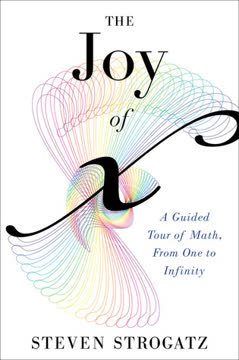



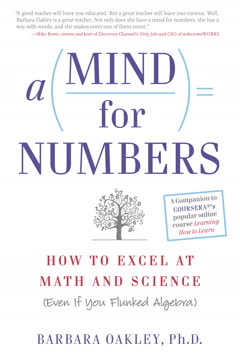
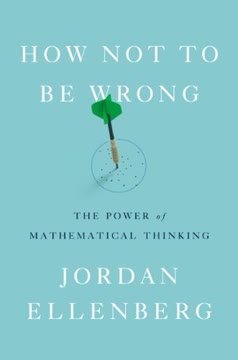
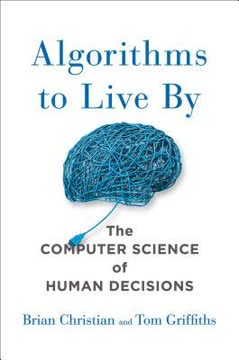
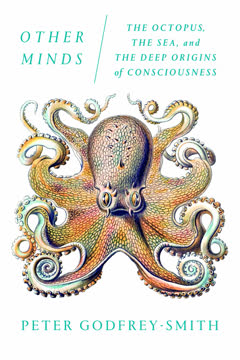
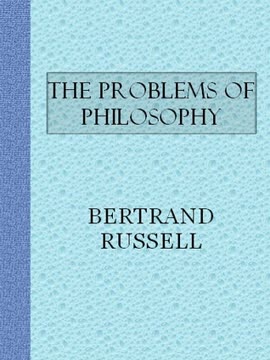

Download PDF
Download EPUB
.epub digital book format is ideal for reading ebooks on phones, tablets, and e-readers.






